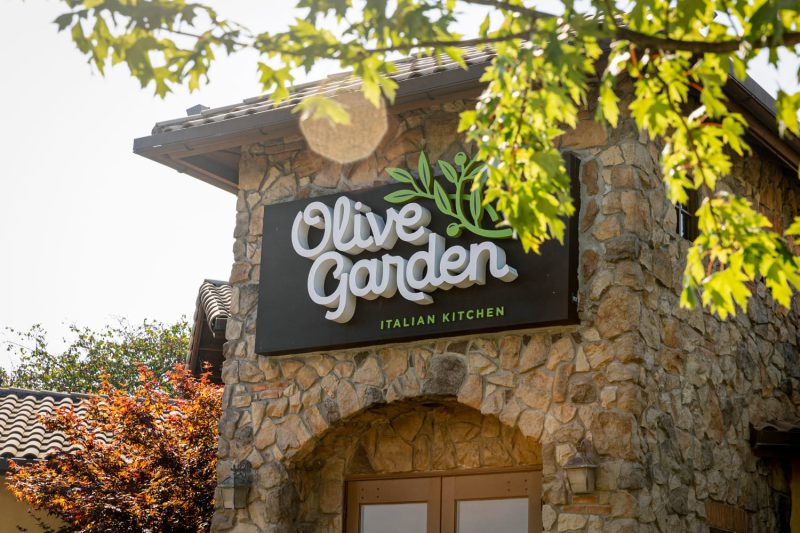June 24, 2024
LongHorn Steakhouse on Top, Olive Garden Left Behind: Darden Earnings Signal Drop in Dining Sales
 Darden Restaurants, the parent company of popular restaurant chains LongHorn Steakhouse and Olive Garden, recently released its quarterly earnings report, revealing a divergence in performance between the two brands. While LongHorn Steakhouse showed promising growth and positive sales figures, Olive Garden faced challenges with a decline in sales. This disparity in performance sheds light on the current trends in the dining industry and the factors influencing consumer behavior.
One of the key factors contributing to the success of LongHorn Steakhouse is its focus on quality and value. Known for its flavorful steaks and inviting ambiance, LongHorn has built a strong reputation for delivering a memorable dining experience to its customers. This emphasis on quality has resonated with diners seeking a higher-end dining option without breaking the bank, positioning LongHorn as a go-to choice for special occasions or everyday meals.
In contrast, Olive Garden has been grappling with changing consumer preferences and increased competition in the casual dining segment. While Olive Garden has traditionally been a favorite for its unlimited breadsticks and pasta dishes, the brand has faced challenges in adapting to shifting tastes and dietary preferences. The rise of health-conscious eating habits and a growing demand for diverse and innovative menu options have put pressure on Olive Garden to revamp its offerings to stay relevant in a rapidly evolving market.
Aside from menu considerations, the impact of external factors such as economic conditions and changing consumer behaviors cannot be overlooked. In recent years, the restaurant industry has faced headwinds from rising costs, including labor expenses and food prices, which have squeezed margins for many operators. Additionally, the shift towards online food delivery services and the rise of food delivery apps have changed the way consumers interact with restaurants, posing challenges for traditional dine-in establishments like Olive Garden.
Furthermore, the ongoing COVID-19 pandemic has had a profound impact on the restaurant industry, causing disruptions in operations and altering consumer dining habits. While some restaurants have adapted by offering takeout and delivery options, others have struggled to stay afloat amidst capacity restrictions and changing regulations. The pandemic has accelerated existing trends in the industry, pushing restaurants to embrace technology and digital solutions to enhance the customer experience and drive sales.
Looking ahead, Darden Restaurants will need to continue to innovate and adapt to the changing landscape of the dining industry to ensure the success of its brands. By leveraging the strengths of LongHorn Steakhouse and addressing the challenges facing Olive Garden, Darden can position itself for growth and navigate the evolving preferences of today's consumers. As the restaurant industry continues to evolve, staying attuned to customer needs and industry trends will be crucial for Darden and its portfolio of brands to thrive in an increasingly competitive market.
Darden Restaurants, the parent company of popular restaurant chains LongHorn Steakhouse and Olive Garden, recently released its quarterly earnings report, revealing a divergence in performance between the two brands. While LongHorn Steakhouse showed promising growth and positive sales figures, Olive Garden faced challenges with a decline in sales. This disparity in performance sheds light on the current trends in the dining industry and the factors influencing consumer behavior.
One of the key factors contributing to the success of LongHorn Steakhouse is its focus on quality and value. Known for its flavorful steaks and inviting ambiance, LongHorn has built a strong reputation for delivering a memorable dining experience to its customers. This emphasis on quality has resonated with diners seeking a higher-end dining option without breaking the bank, positioning LongHorn as a go-to choice for special occasions or everyday meals.
In contrast, Olive Garden has been grappling with changing consumer preferences and increased competition in the casual dining segment. While Olive Garden has traditionally been a favorite for its unlimited breadsticks and pasta dishes, the brand has faced challenges in adapting to shifting tastes and dietary preferences. The rise of health-conscious eating habits and a growing demand for diverse and innovative menu options have put pressure on Olive Garden to revamp its offerings to stay relevant in a rapidly evolving market.
Aside from menu considerations, the impact of external factors such as economic conditions and changing consumer behaviors cannot be overlooked. In recent years, the restaurant industry has faced headwinds from rising costs, including labor expenses and food prices, which have squeezed margins for many operators. Additionally, the shift towards online food delivery services and the rise of food delivery apps have changed the way consumers interact with restaurants, posing challenges for traditional dine-in establishments like Olive Garden.
Furthermore, the ongoing COVID-19 pandemic has had a profound impact on the restaurant industry, causing disruptions in operations and altering consumer dining habits. While some restaurants have adapted by offering takeout and delivery options, others have struggled to stay afloat amidst capacity restrictions and changing regulations. The pandemic has accelerated existing trends in the industry, pushing restaurants to embrace technology and digital solutions to enhance the customer experience and drive sales.
Looking ahead, Darden Restaurants will need to continue to innovate and adapt to the changing landscape of the dining industry to ensure the success of its brands. By leveraging the strengths of LongHorn Steakhouse and addressing the challenges facing Olive Garden, Darden can position itself for growth and navigate the evolving preferences of today's consumers. As the restaurant industry continues to evolve, staying attuned to customer needs and industry trends will be crucial for Darden and its portfolio of brands to thrive in an increasingly competitive market.
If you would like to delve into the world of investment topics , go to our partner project Wall Street Wizardry


